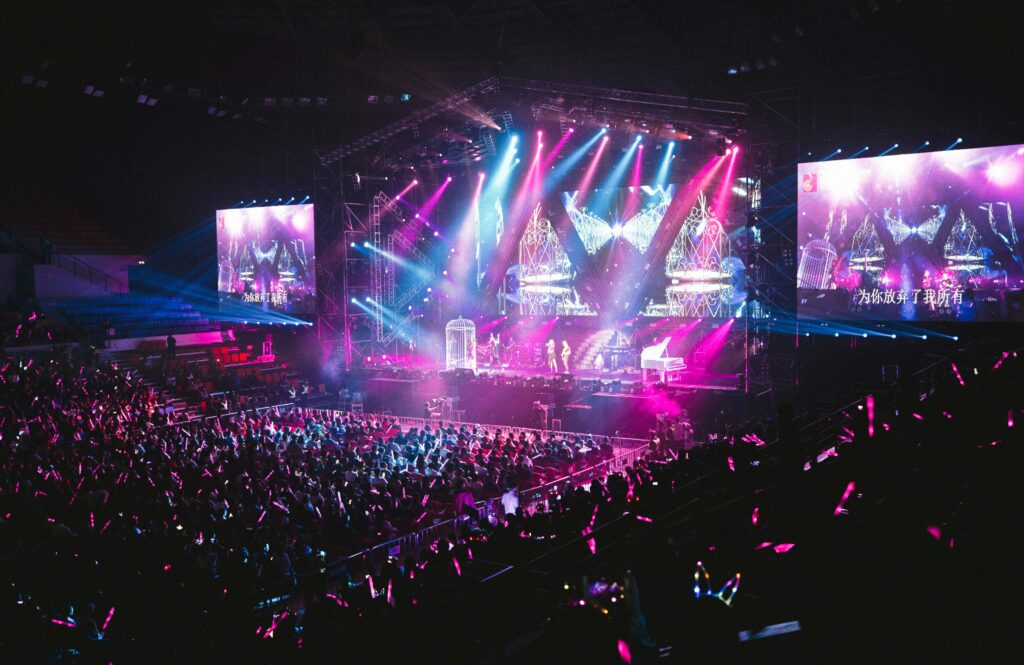The entertainment industry has undergone a radical transformation over the past two decades. Traditional platforms like television and radio have been revolutionized by the rise of digital media, creating new ways for audiences to consume and engage with content. Let’s take a closer look at how this evolution is reshaping the entertainment landscape.

1. The Decline of Traditional Media
While traditional media like newspapers, TV, and radio once dominated the entertainment industry, they’ve seen a steady decline due to changing audience preferences.
- Decreasing Viewership: Cable TV subscriptions have plummeted as streaming services offer on-demand content.
- Radio’s Shift Online: Traditional radio has given way to platforms like Spotify, Pandora, and Apple Music, offering curated playlists and podcasts.
- Print Media Struggles: Magazines and newspapers face tough competition from online publications and blogs that deliver news in real time.
2. The Rise of Digital Streaming Platforms
Streaming platforms like Netflix, YouTube, and Hulu have become central to modern entertainment, allowing users to watch or listen to content whenever and wherever they want.
- Subscription Models: Services like Netflix and Disney+ provide ad-free content for a monthly fee, attracting millions of subscribers worldwide.
- Free Streaming Options: Platforms like YouTube and Tubi offer free content with ads, making entertainment accessible to broader audiences.
- Original Content: Digital platforms are investing heavily in original productions, leading to award-winning shows and films exclusive to streaming.
3. Social Media: A New Entertainment Hub
Social media platforms like TikTok, Instagram, and Twitter have become integral to how we discover and interact with entertainment content.
- Short-Form Content: TikTok’s bite-sized videos are revolutionizing how stories are told and shared.
- Direct Artist Engagement: Fans can connect with their favorite artists through live streams, comments, and interactive polls.
- Viral Trends: Social media challenges and memes have the power to catapult unknown creators to fame overnight.
4. Gaming and Virtual Reality: Immersive Experiences
Gaming and virtual reality (VR) are redefining entertainment by creating highly interactive and immersive experiences.
- Gaming as Entertainment: Platforms like Twitch and YouTube Gaming allow players to share gameplay, attracting millions of viewers.
- VR and AR Experiences: Virtual concerts, like Travis Scott’s Fortnite event, and augmented reality games, like Pokémon GO, are pushing the boundaries of engagement.
5. The Future of Entertainment: What’s Next?
The entertainment industry is embracing emerging technologies to create personalized and immersive experiences.
- AI-Powered Recommendations: Platforms are using artificial intelligence to tailor content suggestions based on user preferences.
- Metaverse Integration: Entertainment companies are investing in the metaverse, offering virtual spaces for concerts, movies, and social interaction.
- Sustainability Efforts: Eco-friendly practices in production and live events are becoming a priority, reflecting the industry’s commitment to sustainability.
Why This Evolution Matters
The shift from traditional to digital entertainment has made content more accessible, diverse, and engaging. It empowers creators to reach global audiences without gatekeepers, while fans enjoy unprecedented levels of choice and interactivity.
As the industry continues to innovate, one thing remains constant: the desire for meaningful, high-quality entertainment that connects people and inspires joy.
